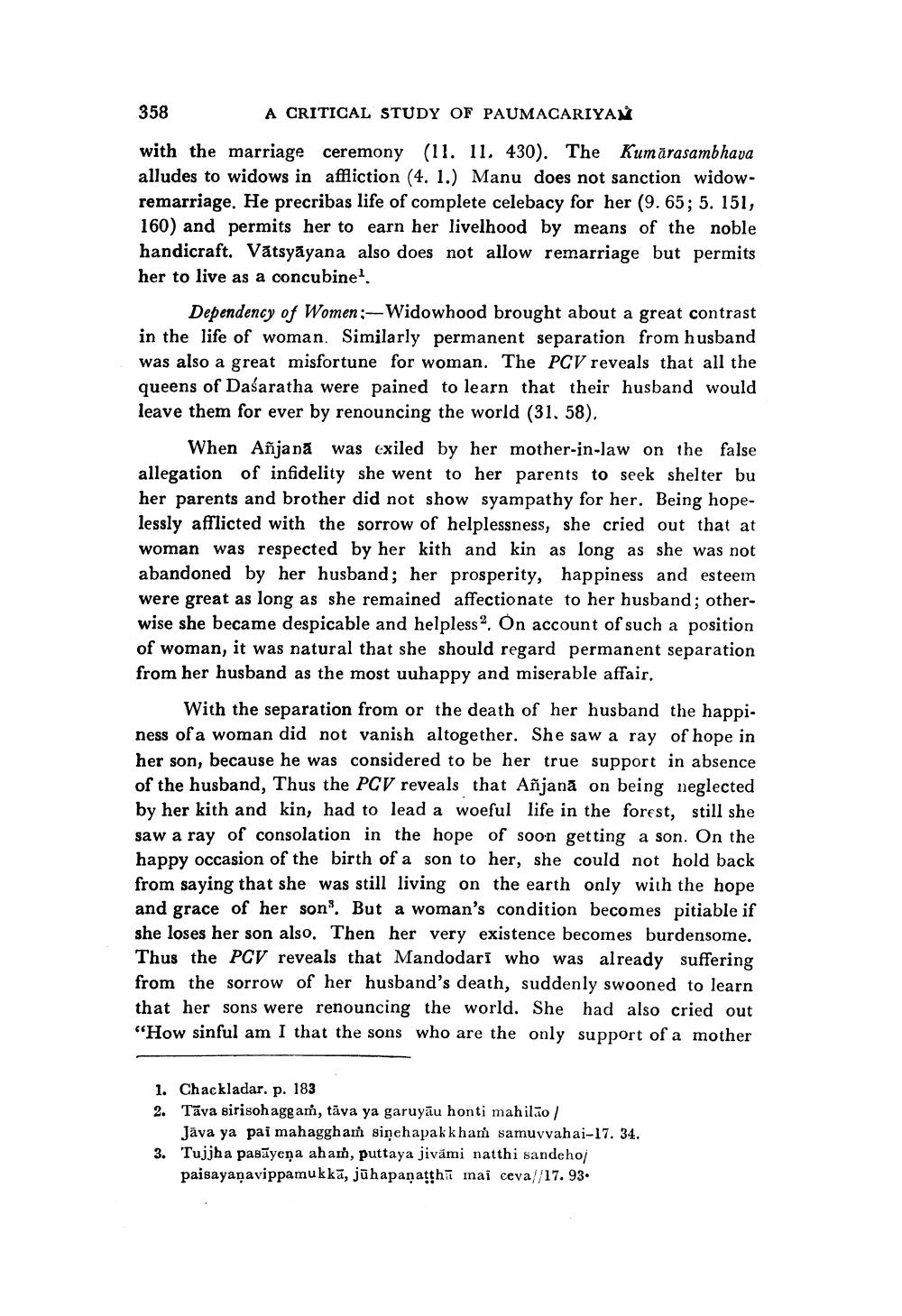________________
358
A CRITICAL STUDY OF PAUMACARIYAM
1.
with the marriage ceremony (11. 11. 430). The Kumārasambhava alludes to widows in affliction (4. 1.) Manu does not sanction widowremarriage. He precribas life of complete celebacy for her (9.65; 5. 151, 160) and permits her to earn her livelhood by means of the noble handicraft. Vátsyāyana also does not allow remarriage but permits her to live as a concubine.
Dependency of Women:-Widowhood brought about a great contrast in the life of woman. Similarly permanent separation from husband was also a great misfortune for woman. The PCV reveals that all the queens of Dasaratha were pained to learn that their husband would leave them for ever by renouncing the world (31. 58).
When Añjana was exiled by her mother-in-law on the false allegation of infidelity she went to her parents to seek shelter bu her parents and brother did not show syampathy for her. Being hopelessly afflicted with the sorrow of helplessness, she cried out that at woman was respected by her kith and kin as long as she was not abandoned by her husband; her prosperity, happiness and esteem were great as long as she remained affectionate to her husband; otherwise she became despicable and helplessa. On account of such a position of woman, it was natural that she should regard permanent separation from her husband as the most uuhappy and miserable affair.
With the separation from or the death of her husband the happiness of a woman did not vanish altogether. She saw a ray of hope in her son, because he was considered to be her true support in absence of the husband, Thus the PCV reveals that Añjanā on being neglected by her kith and kin, had to lead a woeful life in the forest, still she saw a ray of consolation in the hope of soon getting a son. On the happy occasion of the birth of a son to her, she could not hold back from saying that she was still living on the earth only with the hope and grace of her son. But a woman's condition becomes pitiable if she loses her son also. Then her very existence becomes burdensome. Thus the PCV reveals that Mandodarī who was already suffering from the sorrow of her husband's death, suddenly swooned to learn that her sons were renouncing the world. She had also cried out "How sinful am I that the sons who are the only support of a mother
1. Chackladar. p. 183 2. Tāva sirisoh age am, tāva ya garuyāu honti mahilão /
Jaya ya pai mahaggham sinehapakkham samuvvahai-17. 34. 3. Tujjha pasāyeņa aham, puttaya jivami natthi sandehoj
paisayaņavippamukkā, jūhapanatthū mai ceva//17. 93.




